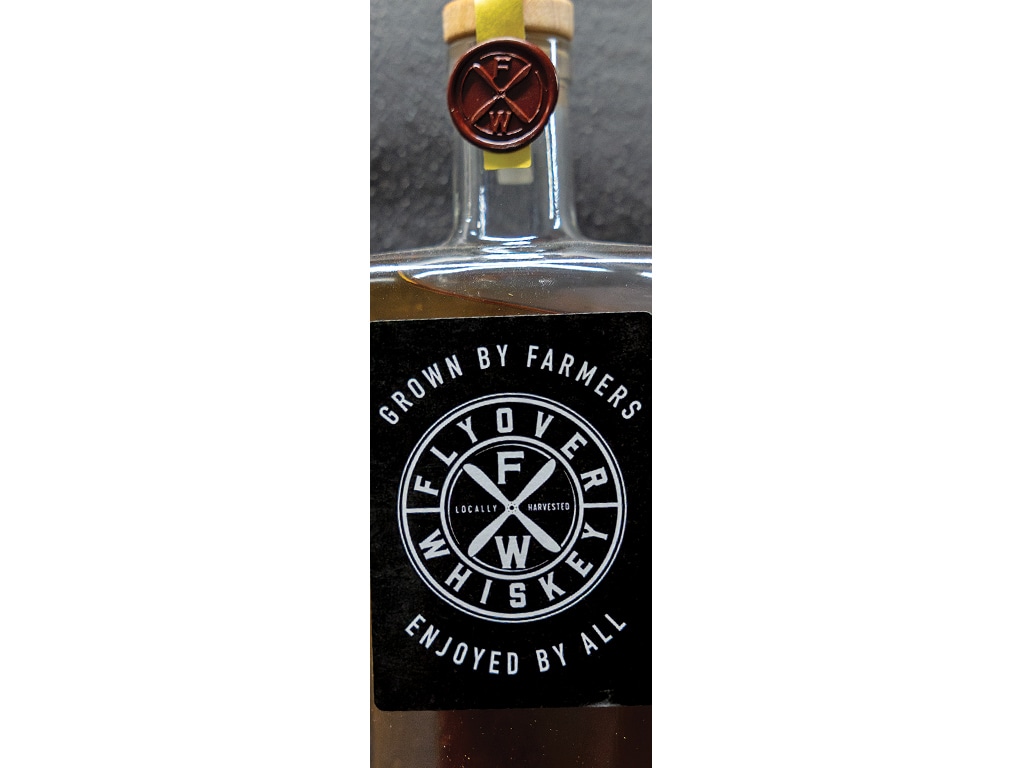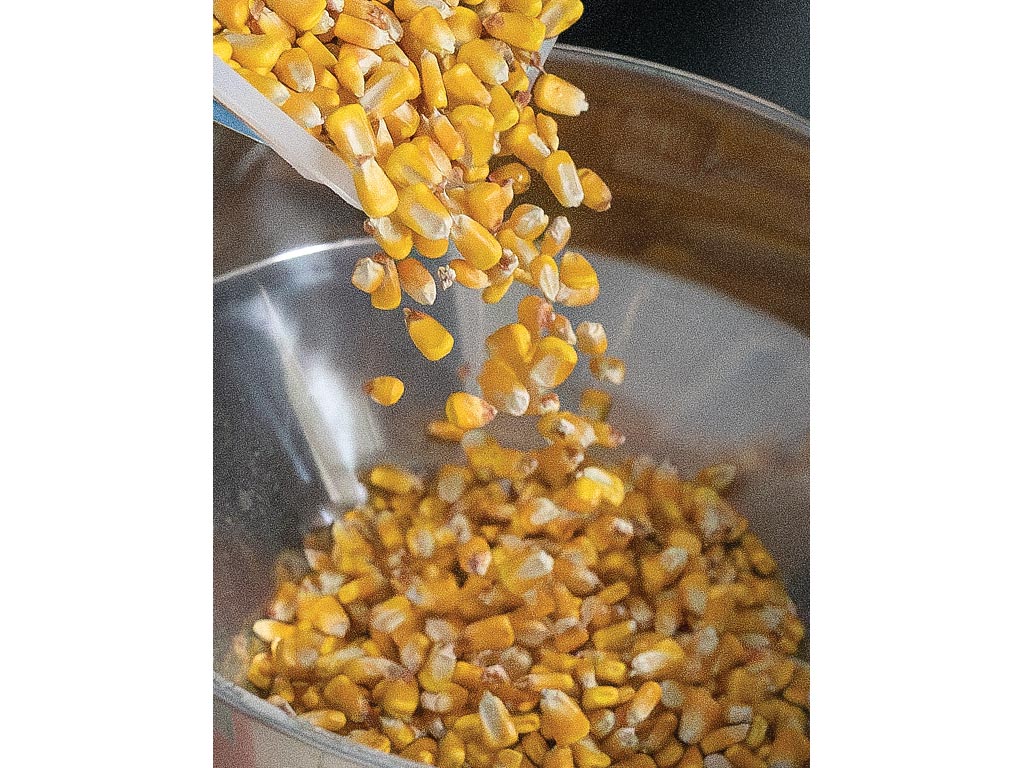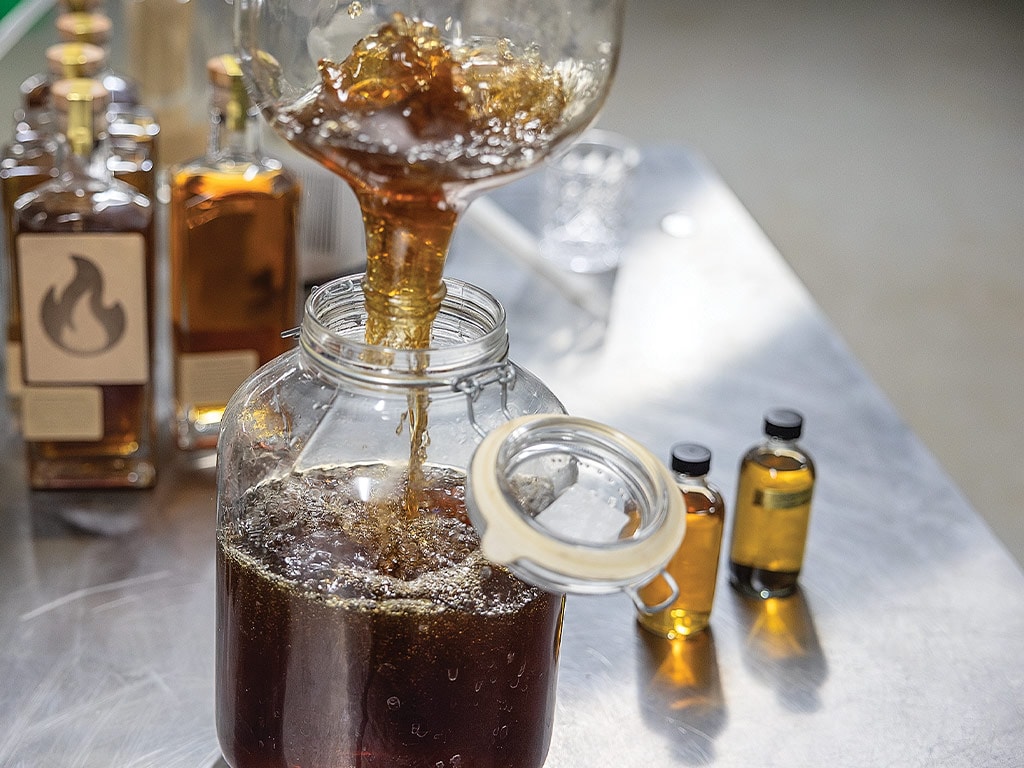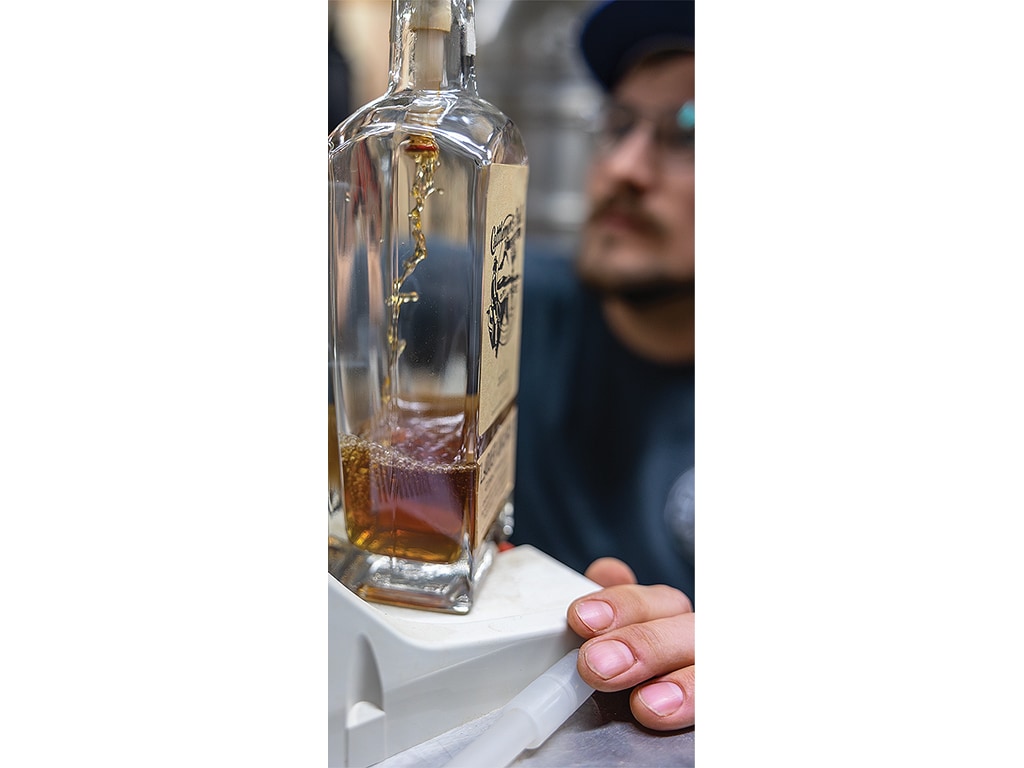Agriculture, Specialty/Niche September 01, 2024
Whiskey to Remember
Flyover Whiskey commemorates farmers' corn harvest.
by Bill Spiegel
The hottest whiskey in Farm Country isn't distilled in Kentucky.
It comes from an abandoned hog farrowing building just south of a cattle feedlot near West Point, Nebraska. That's where Joe Knobbe taught himself the science of making whiskey from corn grown on his family farm, using a distiller's kit he bought off Amazon and YouTube videos on the subject.
"It started as a fun little hobby, something that I could devote my free time to," says Knobbe, who, having just moved back to the farm after college, sought a pastime that "...was productive and wasn't going to get me in trouble," he recalls.
His brother and friends, all of whom possessed a more refined whiskey palate than Joe, agreed he should make more of the stuff. Before long, folks suggested using corn grown on local farms. That led to making whiskey from corn grown on other farms, and then someone suggested putting their farm logo on a customized label.
"Organically it kind of came to me that this was something cool," Knobbe says.
That's how Flyover Whiskey was born.
"You should be able to put your name on the bottle of whiskey, just like you would a beef brand, that you can share with friends and family," Knobbe explains.
Customers place an order for their special batch online, and Flyover Whiskey sends a bag in which growers put 10 pounds of corn to send back to Flyover Whiskey to begin the process. It takes between two and three months to clean, grind, mash, distill, and age, says Devon Birchem, head distiller.
Flyover receives all kinds of corn from its customers, including Yellow Number 2, white, popcorn, sweet corn, and glass corn.
"Each variety or hybrid has a different flavor," notes Birchem.
To become whiskey, the spirit must be in a bourbon barrel, or cask, which is charred white American oak. After aging, the small batch is divided into six 750 ml bottles, each of which features a label created by a local graphic artist who grew up with Knobbe and Birchem. Most customers put the farm name, town, and harvest date or year, although these labels can be customized with a farm logo, yield, per-bushel price, or special event the customer wants to remember.
In three years of business, Flyover Farms has made more than 3,000 batches of whiskey, and has a long waiting list for the 2024 crop. The price per batch is affordable for customers, and profitable for the company, Knobbe says.
"Everyone should be able to afford a six bottle batch," he explains. "That's what we're good at, and we bring that to as many people as we can."
Above. Customers get six bottles of whiskey from each order. All kinds of corn can be used to make whiskey. After aging, head distiller Devon Birchem performs a tasting prior to bottling. Customers note Flyover's whiskey is easy to enjoy with friends and family.
More than whiskey. Knobbe didn't expect the outpouring of stories and gratitude that customers share. Some are celebrating their first or last harvest; others give the stuff away for Christmas presents to family or landlords, or commemorate special occasions.
"It just means so much to so many people," he says.
Adds Birchem: "These folks are our customers, but it feels like we're giving them a gift."
Mark Gronewold, a retired farmer from Adams, Nebraska, ordered two batches in 2022 for the 2023 harvest. One honored his father, Roger, who had passed away in 2021. He gave bottles labeled with Gronewold Farms to his brothers and nephews.
"We popped the cork on Christmas Eve, and holy buckets was that good stuff," he says. "We were kind of surprised how good it really is."
The other batch paid tribute to Gronewold's wife, Pamela, who died in December, 2021. "She really blessed me to have her in my life for this many years. And on the anniversary of my wife's passing, I had some of her closest friends and family over and we did a toast to her," Gronewold says.
Gronewold's is one of dozens of stories that customers have shared with the Flyover Whiskey crew about first harvests, final harvests, weddings, and memorial services.
"That's why we say it really isn't about the whiskey," Knobbe adds.
When it became clear that Gronewold was going to run out of bottles, he asked Knobbe to make a third batch. He plans to continue to give those away—except for one bottle of his dad's, and one of his wife's.
"Those two bottles," he says, "will never be opened." ‡
Read More

RURAL LIVING
Troublesome Neighbors
Living in the countryside means sharing your outdoor experience.

AGRICULTURE, EDUCATION
Shedding Ideas with the FFA SAE Program
SAE projects build careers and lifelong passions.





